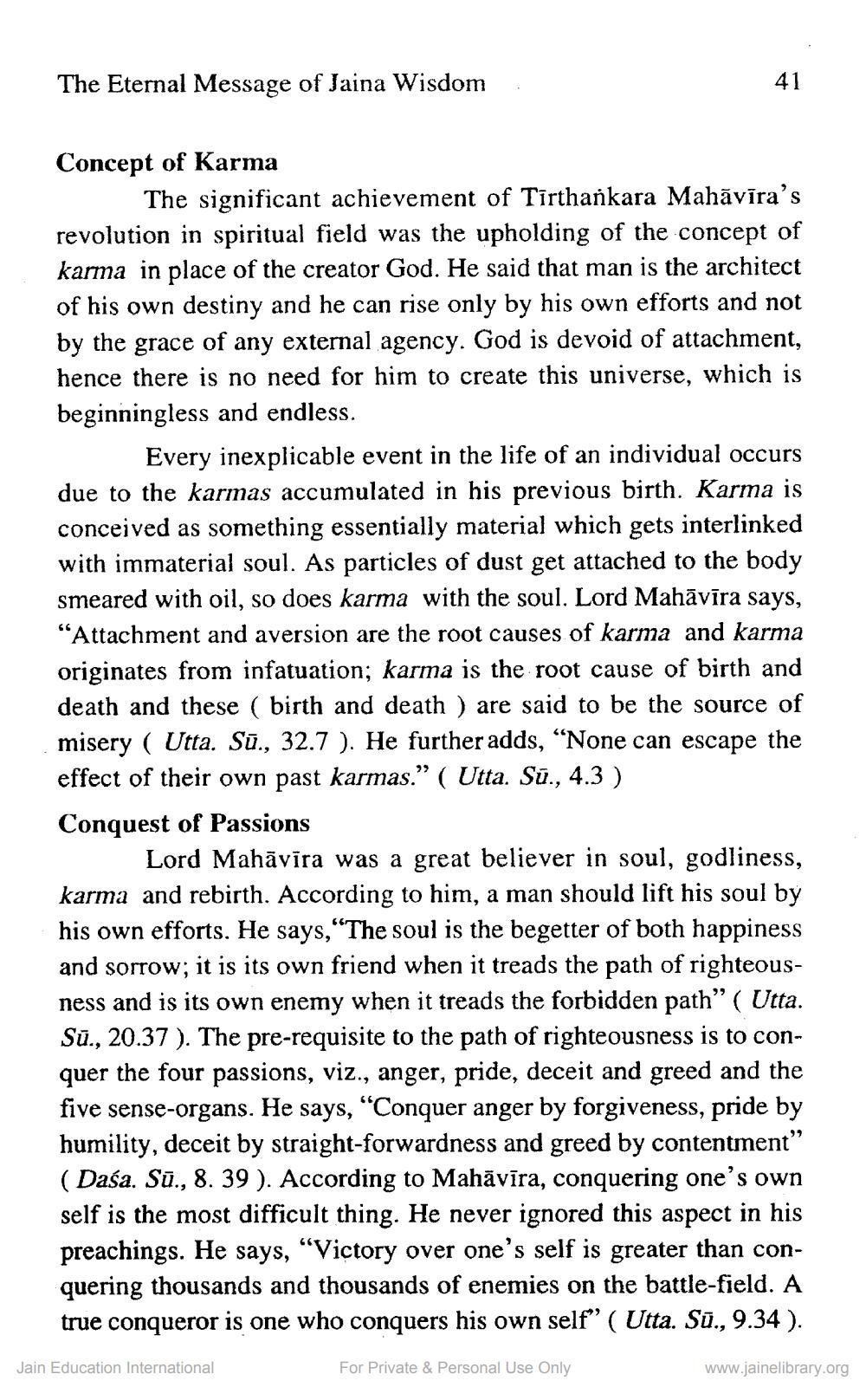________________
The Eternal Message of Jaina Wisdom
Concept of Karma
The significant achievement of Tirthankara Mahāvīra's revolution in spiritual field was the upholding of the concept of karma in place of the creator God. He said that man is the architect of his own destiny and he can rise only by his own efforts and not by the grace of any external agency. God is devoid of attachment, hence there is no need for him to create this universe, which is beginningless and endless.
Every inexplicable event in the life of an individual occurs due to the karmas accumulated in his previous birth. Karma is conceived as something essentially material which gets interlinked with immaterial soul. As particles of dust get attached to the body smeared with oil, so does karma with the soul. Lord Mahāvīra says, “Attachment and aversion are the root causes of karma and karma originates from infatuation; karma is the root cause of birth and death and these ( birth and death ) are said to be the source of misery ( Utta. Sū., 32.7 ). He further adds, “None can escape the effect of their own past karmas.” ( Utta. Sū., 4.3 ) Conquest of Passions
Lord Mahāvīra was a great believer in soul, godliness, karma and rebirth. According to him, a man should lift his soul by his own efforts. He says, "The soul is the begetter of both happiness and sorrow; it is its own friend when it treads the path of righteousness and is its own enemy when it treads the forbidden path” ( Utta. Sū., 20.37 ). The pre-requisite to the path of righteousness is to conquer the four passions, viz., anger, pride, deceit and greed and the five sense-organs. He says, “Conquer anger by forgiveness, pride by humility, deceit by straight-forwardness and greed by contentment” (Daśa. Sū., 8. 39). According to Mahāvīra, conquering one's own self is the most difficult thing. He never ignored this aspect in his preachings. He says, “Victory over one's self is greater than conquering thousands and thousands of enemies on the battle-field. A true conqueror is one who conquers his own self" ( Utta. Sū., 9.34 ).
Jain Education International
For Private & Personal Use Only
www.jainelibrary.org




